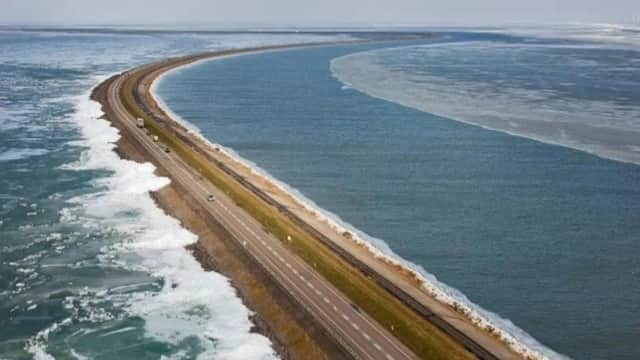£2bn plans for world’s first tidal powered deep sea container terminal across The Wash


Developers Centre Port say the a £2bn tidal barrier scheme could generate enough tidal energy produce enough energy to power 600,000 homes and protect homes and businesses along the coast from flooding.
The 11-mile barrage project would also include a dual carriageway and could create 1,200 jobs, Centre Port have said.
Advertisement
Hide AdAdvertisement
Hide AdHowever, there are concerns from conservationists, including the RSPB, who are calling for a rethink, saying a tidal barrage would fundamentally alter the nature of the intertidal habitats on which this wildlife depends..


Under the proposals, Centre Port said a "hydro-electric dam" with about 15 tidal turbines under the water could produce enough energy to power 600,000 homes.
The company said the project would act as a flood defence scheme for communities in Lincolnshire, the Fens and Norfolk, protecting against land-side flooding and tidal surges.
Already the project has won a six-figure investment from energy firm Centrica, who inaugurated the 270MW Lincs offshore wind farm, located roughly 8km off the Skegness coast, in August 2013.
Advertisement
Hide AdAdvertisement
Hide AdJames Sutcliffe, chief executive officer of Centre Port Holdings, said the company wanted to utilise The Wash's "tidal area of 780sq km for renewable energy production" and create job opportunities for young people.
Mr Sutcliffe said: "Because we can shut down the turbines, which have sluice gates in them, we can then stop surge tide coming through from the North Sea, like it did in 1953 and 2013, and stop it damaging the countryside and preserving The Wash as it is today."
However the RSPB claim construction of the could lead to greater - and more frequent – flooding.
Nick Bruce-White, director of RSPB England, said: “The Wash is one of the most complex coastal habitats for its hydrology and stunning range of wildlife. Spending millions of pounds on assessments and surveys is a waste of time and money that could be better spent on more workable, established solutions to generate green energy, such as wind and solar power."
A planning application for the scheme is yet to be submitted, but if approved Centre Port Holdings say they hoped the project would be operational by 2028.